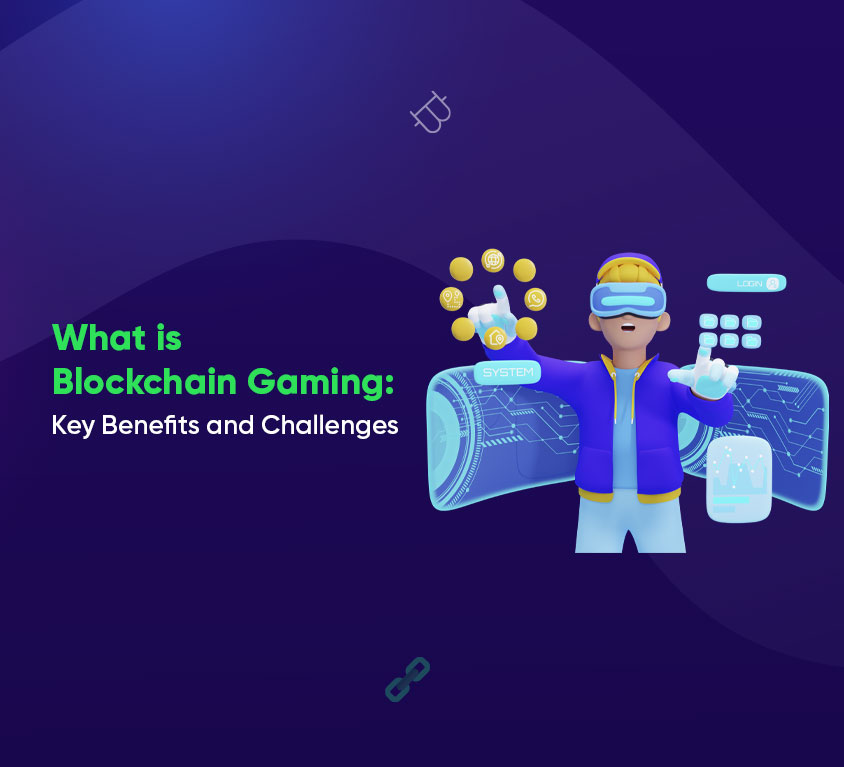Blggzz: Your Daily Dose of Insight
Stay updated with the latest news and informative articles.
Gaming Reimagined: How Blockchain Verification is Leveling Up Your Experience
Discover how blockchain verification is transforming your gaming experience. Level up your play with secure, unique, and rewarding interactions!
Understanding Blockchain Verification: The Future of Trust in Gaming
Understanding Blockchain Verification is crucial as the gaming industry evolves, integrating new technologies to enhance security and user trust. In traditional gaming, players often face concerns regarding fraud, ownership rights, and data security. However, with the advent of blockchain technology, these challenges are being addressed through decentralized verification processes. By utilizing this ledger system, gamers can verify in-game assets and transactions without relying on a centralized authority, ensuring transparency and promoting fair play.
The potential impact of blockchain on the gaming sector is profound. As developers embrace this technology, the future of trust within gaming is set to transform significantly. Blockchain verification not only safeguards players' investments in virtual goods but also facilitates secure transactions and enhances the gaming experience. With features like smart contracts, players can engage in peer-to-peer transactions with complete confidence, knowing that their agreements are enforced automatically and securely. As this technology continues to mature, it will undoubtedly reshape the landscape of the gaming industry.

Counter-Strike is a popular team-based first-person shooter game that has captivated gamers worldwide. Its strategic gameplay and competitive nature have made it a staple in the esports community. Players can enhance their gaming experience with various promotions, such as using the bc.game promo code to access exclusive bonuses and rewards.
How NFTs are Changing the Landscape of Game Ownership
Non-fungible tokens (NFTs) are revolutionizing the concept of game ownership by providing players with true digital ownership of in-game assets. Traditionally, players have invested time and money into games, but they lacked any real claim over their virtual goods. With the advent of NFTs, game developers are now able to create unique, verifiable digital items that players can buy, sell, and trade on various platforms. This shift empowers gamers, transforming them from mere consumers into owners of digital property, which can hold tangible value in the real world.
Moreover, NFTs introduce exciting new possibilities for game developers by enabling play-to-earn models that reward players for their engagement. As players acquire NFTs through gameplay, they can earn real-world income by monetizing their assets. This innovative approach fosters a more immersive gaming experience and encourages community building. As NFTs continue to reshape the landscape of game ownership, we can expect to see an increasing number of titles integrating this technology, fundamentally altering how players interact with and value their digital worlds.
Can Blockchain Technology Enhance Fairness in Online Competitive Gaming?
The gaming industry has witnessed immense growth over the past few years, with competitive gaming becoming a major focal point. By integrating blockchain technology, developers can enhance the fairness in online competitive gaming. One of the primary advantages of blockchain is its transparent transaction system. All in-game transactions, whether they involve the buying of assets or the implementation of rewards, can be recorded on a public ledger. This transparency ensures that all players have access to the same information, minimizing the potential for cheating and manipulation by a select few. Furthermore, the decentralized nature of blockchain fosters a trustless environment where players can engage without fear of unfair practices.
Additionally, blockchain can introduce innovative elements such as provably fair algorithms, where the randomness of game outcomes is guaranteed and verifiable. Players can check the fairness of transactions and outcomes, building a stronger sense of community and trust. By implementing smart contracts, developers can create automated systems that execute based on predetermined rules, ensuring that players receive fair treatment. As online competitive gaming continues to evolve, the incorporation of blockchain technology could potentially redefine how fairness is perceived, offering players a level playing field and fostering a more genuine competitive spirit.